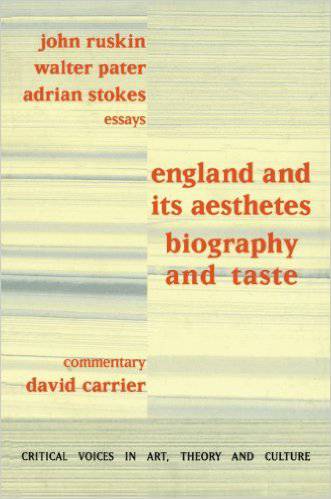John Ruskin (1819–1900), Walter Pater (1839–1894), and Adrian Stokes (1902–1972) represent three generations of English aesthetes whose writings have transformed art history and the formations of museums as we know them. They are three great writers in a distinctively English tradition. Concerned with the nature of aesthetic experience, and with the interpretation of visual art, they offer approaches that are dramatically different, in challenging ways, from those of professional art historians. They published autobiographies, explaining the relationship of their conceptions of aesthetic experience to their critical thinking about social questions. With England and Its Aesthetes, David Carrier has assembled the autobiographical sketches of these influential aesthetes. His reading reveals them to be less concerned with art appreciation or an aesthetic approach to everyday life than with issues of identity, politics, and desire.
- / Author
- / Article author
- / Article author
- / Article author
